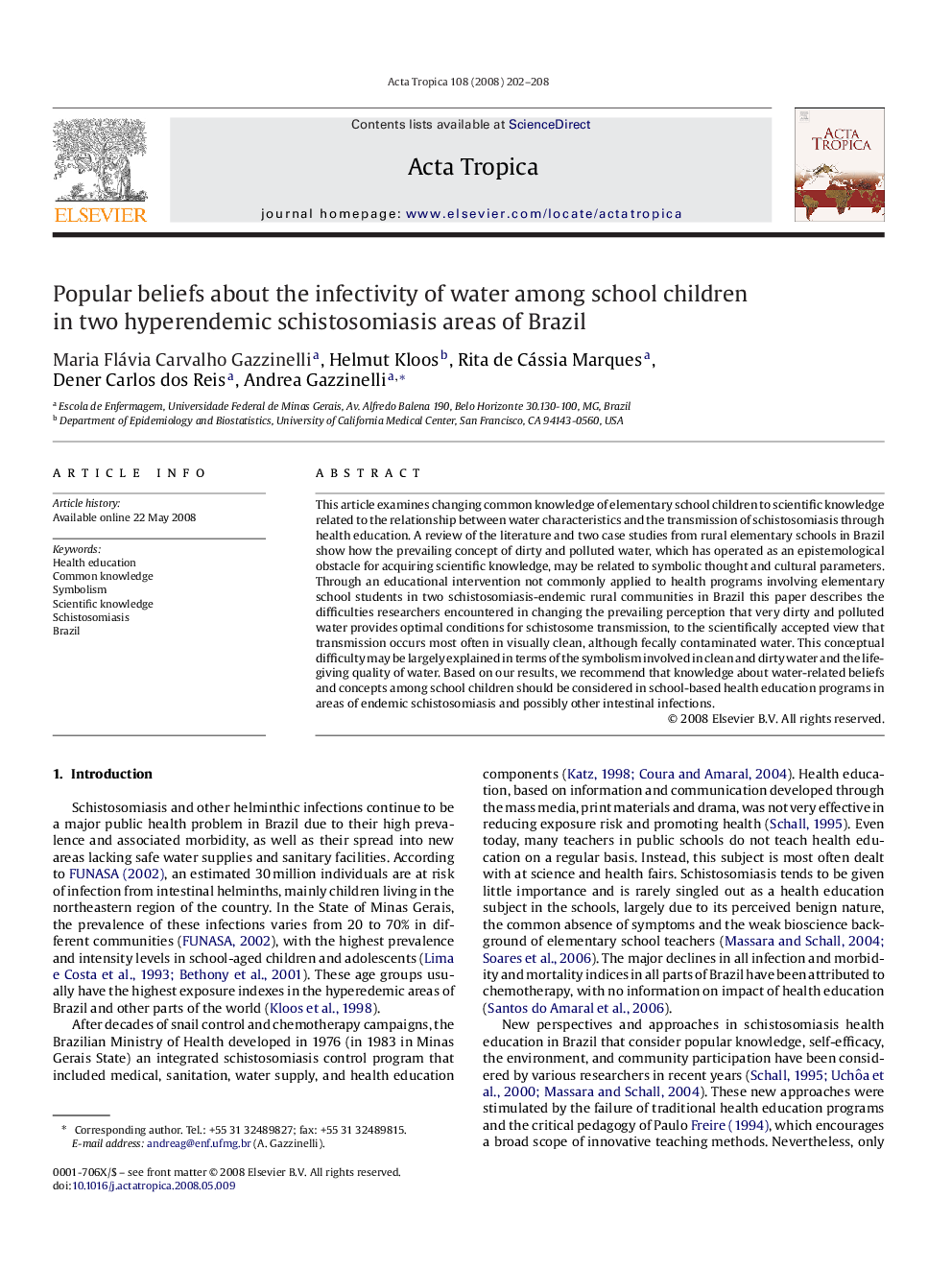| Article ID | Journal | Published Year | Pages | File Type |
|---|---|---|---|---|
| 3394485 | Acta Tropica | 2008 | 7 Pages |
This article examines changing common knowledge of elementary school children to scientific knowledge related to the relationship between water characteristics and the transmission of schistosomiasis through health education. A review of the literature and two case studies from rural elementary schools in Brazil show how the prevailing concept of dirty and polluted water, which has operated as an epistemological obstacle for acquiring scientific knowledge, may be related to symbolic thought and cultural parameters. Through an educational intervention not commonly applied to health programs involving elementary school students in two schistosomiasis-endemic rural communities in Brazil this paper describes the difficulties researchers encountered in changing the prevailing perception that very dirty and polluted water provides optimal conditions for schistosome transmission, to the scientifically accepted view that transmission occurs most often in visually clean, although fecally contaminated water. This conceptual difficulty may be largely explained in terms of the symbolism involved in clean and dirty water and the life-giving quality of water. Based on our results, we recommend that knowledge about water-related beliefs and concepts among school children should be considered in school-based health education programs in areas of endemic schistosomiasis and possibly other intestinal infections.
